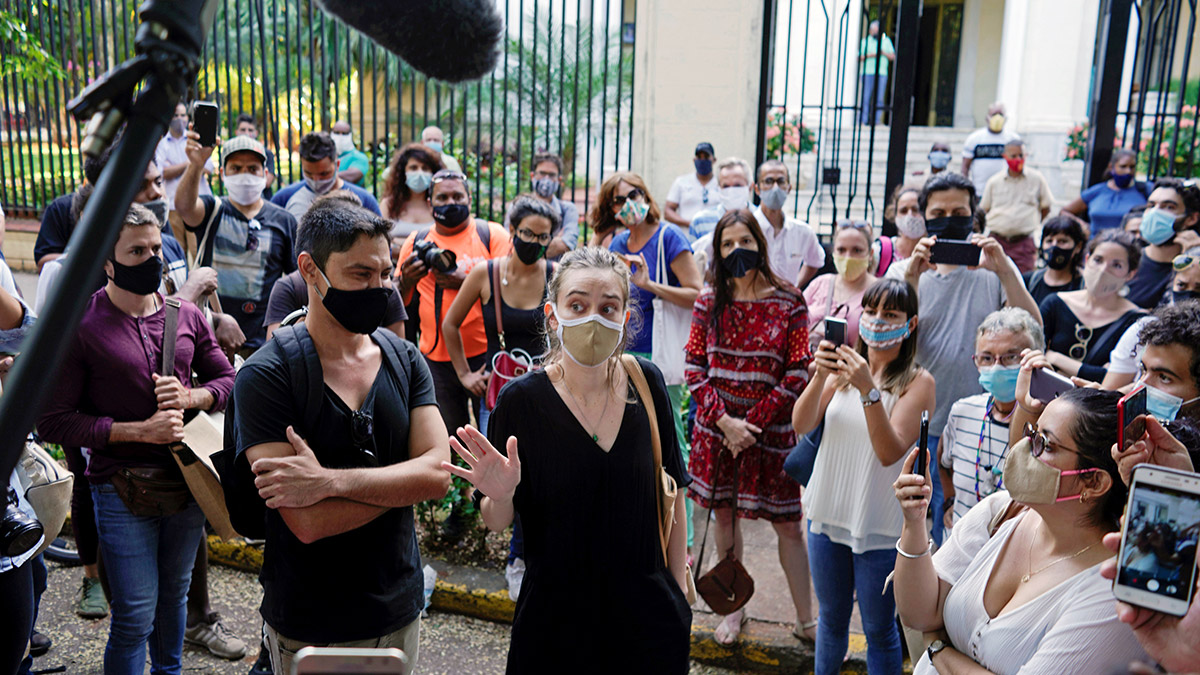There have been countless calls for the unity in the opposition to the Castro dictatorship, but few seem to know how to achieve this, or what to do with it.
When it comes to such appeals for unity, they are regularly issued in a routine and vague way, without specifying what kind of unity, or who its agents or protagonists should be. The history of Cuba that began in 1959 shows us how, from the outset of the revolutionary process, the regime's strategy was based on the maximum dissolution of formal and informal ties between all citizens. This infinite set of inter-citizen relationships is what today is called "social capital," which, in an imperceptible way, makes up the connective tissue of every society, its unifying element of social cohesion.
However, from the beginning, analysts of the revolutionary process primarily focused on the most easily observable and measurable aspects of what happened during the first two years, especially the expropriation of companies' physical and financial capital, much of the citizens' real estate (buildings and land), and the loss of a major portion of the country's human capital through an exodus abroad.
But social capital is not alienable. Thus, it was simply diluted, along with the suppression of the freedom of expression and communication. The elementary inter-citizen relations that still exist without government intervention are limited in scope, restricted to families, neighbors, colleagues from a few unions and workplaces, students and members of religious orders.
Soon the Cuban Government monopolized ties between the people through the State's organizations and companies, the Armed Forces, the Communist Party, and mass organizations.
In a very short time Cubans lost their freedom to organize not only political activities, but also those of any other nature. Along with a reduction in private property, freedom of commerce and business, and other liberties that were respected even during the Batista dictatorship, the new government soon restricted the entire gamut of freedoms of organization and expression. Thus, citizens were isolated from each other, and therefore, exposed to arbitrary manipulation by the new governmental order.
That is, Cubans' connective means to carry out any independent, collaborative tasks in favor of their individual interests was reduced to a bare minimum.
In their respective evolutions, societies gradually amass various forms of wealth, some tangible and others less tangible, or entirely intangible. Among the former we can include physical, financial and human capital; and among the latter, cultural capital and social capital, this being a relatively modern concept in the social sciences, but one that has been become more prominent and, increasingly, been assigned greater methodological and analytical utility.
The identification of social capital and its evolution within the framework of Cuba serves to enrich study of the country and, above all, to illuminate some critical aspects of its anomalous development during the revolutionary process. As an intangible form of wealth that cannot be easily quantified or measured, social capital adds an extremely useful analytical dimension to describe and explain what has happened in Cuba since 1959, in addition to facilitating study and the formulation of strategies and policies for change in the country through civil society.
A change that could guide others
The practical importance of this concept cannot be overstated in light of what happened in Havana in November 2020 with the San Isidro Movement (MSI), when some 300 Cuban artists and intellectuals gathered in front of the Ministry of Culture to demand dialogue with the authorities and express their discontent over restrictions on their freedom.
This event was followed in February by a similar, although smaller, demonstration before the Ministry of Agriculture, to complain to the authorities about the lack of action to prevent the mistreatment of animals and the government's disinterest in this situation. Both events are examples of the preliminary power of social capital, and evoke the impact of the Solidarity movement in Poland in the 1980s.
In all three cases, the protests came about because a certain unity was achieved thanks to the fact that the participants, connected to each other because they belonged to a certain social group, were able to define and express a concrete and practical objective rooted in a common interest. In all three cases interpersonal relationships not only facilitated collective action, but also the expression of a common interest because the people in question belonged to a certain sector. Belonging to a professional community facilitates personal contact, exchange and communications, as well as the identification of common interests and levels of interpersonal trust necessary to carry out actions that can be successful over the long run.
What is interesting and promising about these events is that they disarm the members of the Cuban Government, who, with great arrogance, oppose all forms of dialogue, even simply listening to the opinions of citizens, hiding behind false statements about the origins and motivations of these initiatives, and accusing their participants of being agents of the United States and harboring subversive motives. It is also interesting to note that these initiatives can be carried out in accord with the Cuban constitution and its legal system, although the authorities do not recognize this.
After more than 60 years of popular impotence in the face of the abuses of Castro's totalitarianism, and stubborn government refusals to address the serious problems that affect the country, two examples of citizen initiatives have appeared on the Cuban scene that, replicated on more occasions, and by other actors, could pave a path to some form of change on the island.
In the absence of other feasible strategies for change, and given the regime's ostensible inability to improve living conditions in Cuba, sustained and diversified pressure from the opposition to force dialogue with those in power opens up possibilities that must be explored with patience and wisdom. This could be the formula to bring about some kind of change in the country, which could lead to more.
